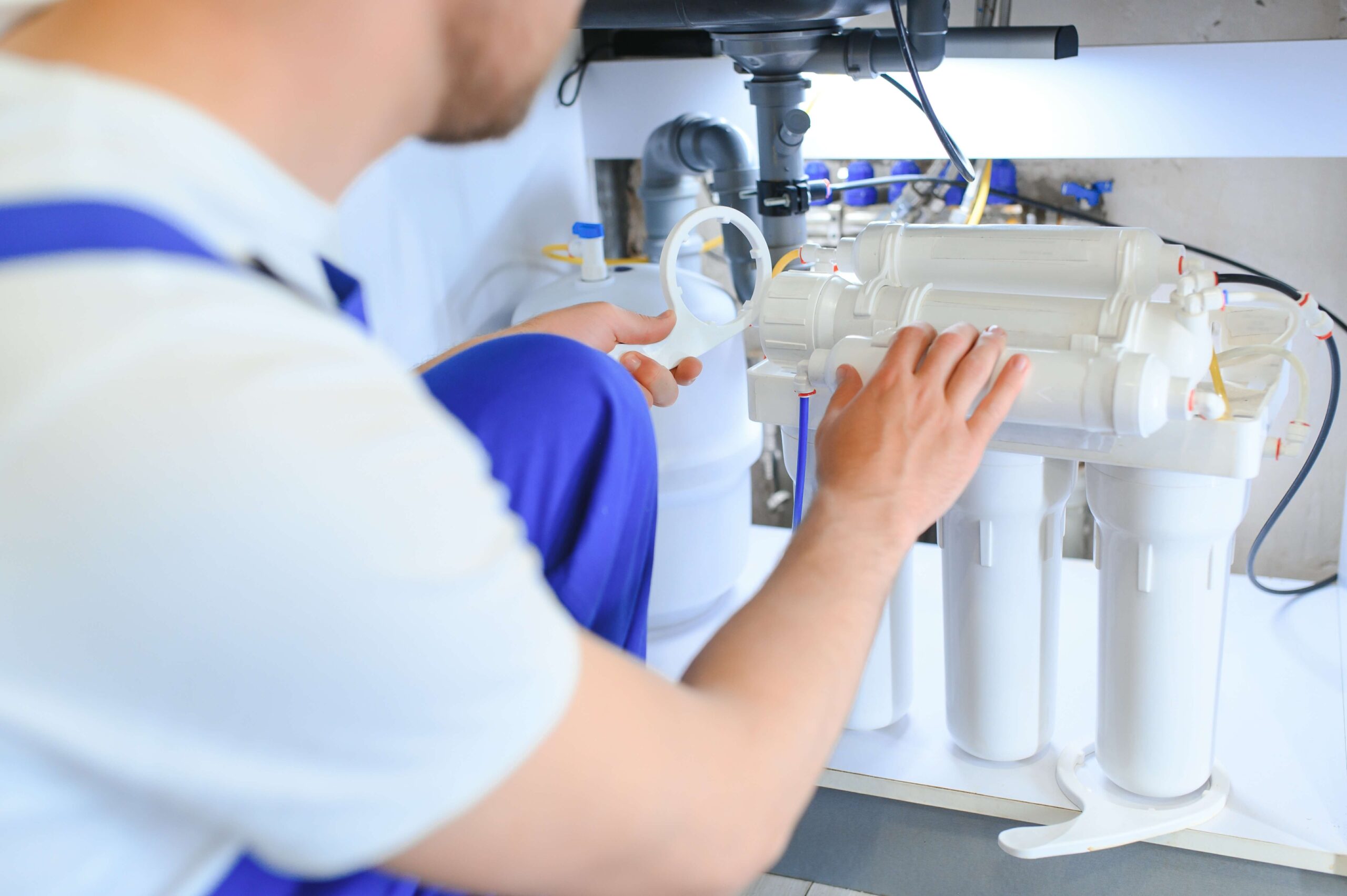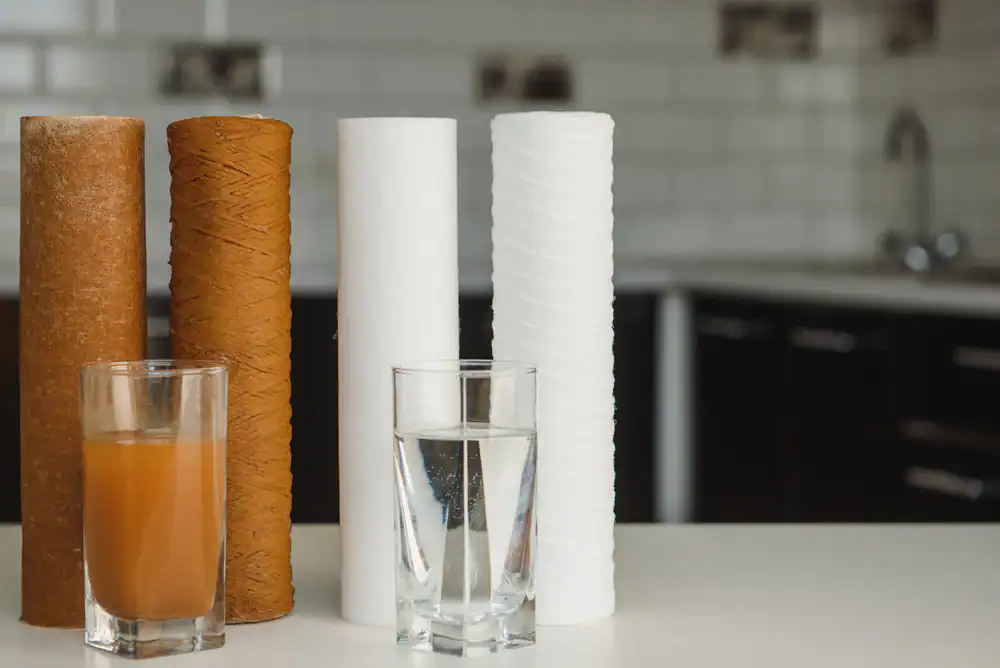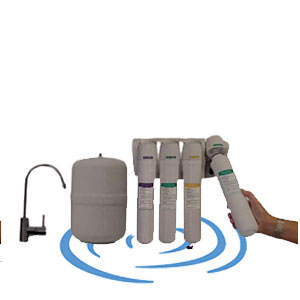Summary:
Why Lake County Well Water Needs Specialized Treatment
Florida’s waterways face significant quality challenges, with many not meeting water quality standards due to nutrient pollution. Lake County sits right in the middle of this reality, where your well water pulls from aquifers that naturally contain high levels of iron, sulfur compounds, and other minerals that create daily headaches for homeowners.
The unique geological composition, characterized by limestone aquifers and natural mineral deposits, makes the region particularly susceptible to water quality issues. What this means for you is that standard water softeners or basic carbon filters won’t touch the real problems you’re facing.
The Real Cost of Ignoring Iron and Sulfur Problems
That distinctive sulfur smell when you turn on the shower and those unsightly orange-brown stains in sinks and toilets aren’t just annoying—they’re warning signs of bigger problems brewing in your plumbing system. Iron doesn’t just stain your fixtures; it stains sidewalks, driveways, and adds that metallic taste to everything you drink or cook with.
The damage goes deeper than what you can see. Untreated water problems can damage your plumbing, reduce appliance lifespans, and potentially impact your family’s health and comfort. Your dishwasher, washing machine, and water heater are all taking a beating from mineral buildup that could be prevented with the right filtration system.
Think about the money you’re already spending on bottled water, constant cleaning products to fight stains, and premature appliance replacements. Those rust-colored stains on plumbing, cookware, and laundry represent ongoing damage that’s costing you more than you realize. A quality whole house water filter system pays for itself by protecting your home’s infrastructure and eliminating these recurring expenses.
What Makes Florida Water Different from Other States
Florida’s water challenges aren’t like what you’d find in Colorado or Michigan. Sulfur-reducing bacteria present in groundwater use sulfur as an energy source, converting sulfates to hydrogen sulfide using decaying plants and organic matter in oxygen-deficient environments, and they can occur in deep or shallow wells. This is why that rotten egg smell seems to come and go—the bacteria levels fluctuate based on seasonal conditions and groundwater changes.
Iron is typically present in well water in three common forms, though other forms exist, they are much less common. You’ve got ferric iron (red water iron) that’s been exposed to oxygen, ferrous iron (clear water iron) found in oxygen-free water from deeper wells, and carbon dioxide acting on iron in the ground to form soluble ferrous bicarbonate.
Understanding these differences matters because it determines which type of whole house water filtration system will actually solve your specific problems. A system designed for Minnesota’s iron problems might not touch Florida’s sulfur bacteria issues. Florida’s warm climate creates ideal conditions for bacterial growth in well water, particularly after heavy rains, and some wells show traces of PFAS concerns requiring advanced treatment methods. This is why generic, one-size-fits-all systems often disappoint Lake County homeowners.
How Different Whole House Water Filter Systems Actually Work
Not all whole house water filter systems are created equal, especially when you’re dealing with Lake County’s specific contamination issues. The most effective approach combines hydrogen peroxide oxidation with a catalytic carbon backwashing filter, making iron, manganese, and hydrogen sulfide easy to remove. But there are several proven methods, each with distinct advantages depending on your water test results.
The key is understanding that when iron, manganese, and hydrogen sulfide are exposed to oxygen, they become insoluble or solid in the water, and once the contaminants are solid, they can be filtered out with a catalytic carbon filter. This oxidation process is the foundation of effective iron and sulfur removal.
Carbon Filter Systems vs Iron Clear vs Sulfur Clear Solutions
Quality catalytic carbon and certified KDF media target and remove harmful contaminants like chlorine, chloramine, PFOA, PFOS, pesticides, herbicides, and haloacetic acids, with KDF media removing harmful chemicals and Stage 2 catalytic carbon removing organic contaminants including VOCs. But here’s what most homeowners don’t realize—standard carbon filters aren’t designed to handle high iron and sulfur levels.
For moderate iron levels up to 3 ppm, a whole house iron filter with KDF or air injection is usually enough. But for severe iron (5+ ppm), a dedicated oxidation-based system is your best bet. If you’ve got relatively high amounts like four parts per million or less of iron, systems with Birm media work well, and if you have trace amounts of sulfur, it’s manageable.
The real game-changer for Lake County homes is understanding that pH levels matter significantly—systems with Birm media need pH of 6.8 or higher, catalytic carbon systems need 6.5 or higher, while Katalox systems work from 6.0 to 9.0 pH, but for manganese removal with Katalox, pH must be 8.0 or higher. This is why water testing before system selection is absolutely critical.
Air Injection Oxidation vs Chemical Injection Systems
Air injection oxidation (AIO) systems effectively remove up to 7 ppm of ferric, ferrous, and organic iron, 8 ppm of hydrogen sulfide (sulfur), and 1 ppm of manganese by maintaining an “air pocket” at the top of the tank that oxidizes contaminants as water passes through, turning them into solid particles that get trapped in the greensand fusion filter bed. The beauty of AIO systems is they use the oxygen that’s already in your water—no chemicals required.
Hydrogen peroxide injection systems always work because it’s scientifically proven as an excellent iron oxidizer, though you’ll have an annual hydrogen peroxide bill of typically $200 to $300, which most people consider a small price for iron-free water. This type of system requires regular maintenance in the form of filling the hydrogen peroxide tank as it’s used up, and the carbon filter media requires periodic backwashing and eventual replacement after 4 to 5 years.
For Lake County homeowners, the choice often comes down to maintenance preferences and contamination levels. Advanced digital valve systems ensure worry-free, maintenance-free operation by automatically cleaning themselves, preventing downtime and eliminating the need for toxic chemicals. Innovative designs allow systems to pull air into the system at any time to refill oxygen without requiring a full backwash, saving thousands of gallons of water every year. The right system depends on your specific water test results and how hands-on you want to be with maintenance.
Making the Right Choice for Your Lake County Home
If you’re tired of sulfur smells, rust stains, or mystery contaminants in your water, whole-house systems don’t just hide the problem—they fix it. The key is getting a professional water test that identifies exactly what you’re dealing with, then choosing a system designed for those specific contaminants and your home’s water usage patterns.
Working with a professional helps you decide on the best well water filtration system for meeting your specific needs, and with a customized recommendation, you can be confident your filtration system is the best option for your requirements. We specialize in Lake County’s unique water challenges and can help you choose the right whole house water filter system for your family’s needs.





